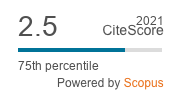Article | Open Access
A Different Way of Thinking About Refugees: Relocation and Settlement of Expatriate Syrian Business People
| Views: | 356 | | | Downloads: | 156 |
Abstract: The 2011 Syrian uprisingresulted inmillions of Syrians fleeing to neighboring countries such as Turkey, Jordan, and Lebanon, while others chose to relocate to Egypt. Among this unprecedented refugee wave, thousands were upper‐middle or upper‐class business people in pre‐uprising Syria. This article examines how the Syrian refugee business people’s social class affected their relocation and settlement in Turkey, Egypt, and Jordan. The data in this research are based on the analysis of ten months of fieldwork in Turkey, Egypt, and Jordan with 213 in‐depth interviews of Syrian business people conducted by the author. The findings suggest that, first, the political relations between the host–home countries and the economic structure of the host countries affect what type of political or economic business people are relocating. Second, Syrian business people are more resilient than other refugees in balancing the challenges they meet in host societies, mainly based on their economic capital and status as business professionals. This article argues that the relocation choice and settlement process of the Syrian business people are closely related to their class as business professionals since both their relocation and settlement are affected or facilitated by their professions. This case shows how refugees’ relocation and settlement processes go through a class‐based orientation, depending on the specific resources they have and the related considerations regarding their professions. Keeping in mind the various social compositions among the massive refugee waves or forced migration, which might affect the results of relocation and settlement, this further suggests that refugee policymaking should be more “customized,” taking the refugees and forced migrants’ social classes into consideration.
Keywords: class; refugee business people; relocation; settlement; Syrian refugee
Published:
© Ching-An Chang. This is an open access article distributed under the terms of the Creative Commons Attribution 4.0 license (http://creativecommons.org/licenses/by/4.0), which permits any use, distribution, and reproduction of the work without further permission provided the original author(s) and source are credited.



